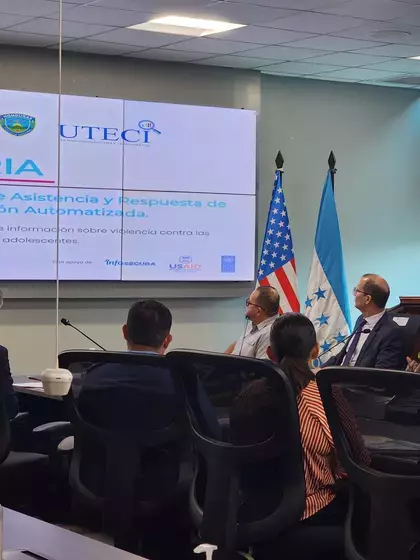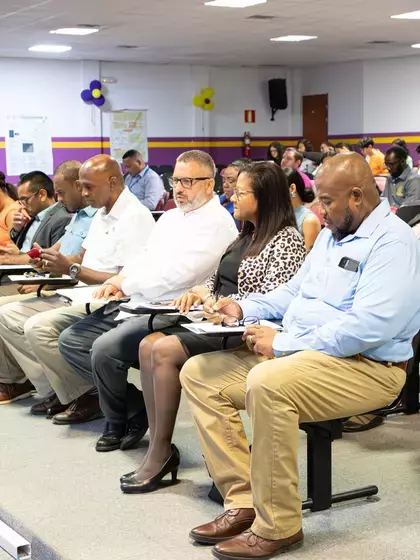Road safety ensures the well-being of people and societies

For the third consecutive year, the United Nations Development Programme (UNDP) chaired the Ibero-American Congress on Mobility and Road Safety, organized by MOVES, generating a dialogue on the importance of mobility and road safety.
Sustainable mobility, environmental sustainability, safe means of transportation and a gender approach are essential elements in the fulfilment of the 2030 Agenda and the 17 Sustainable Development Goals (SDGs), as well as the Paris Agreement, which brings together climate commitments.
MOVES is supported in the framework of the InfoSegura Regional Project, which specializes in evidence-based information management for citizen security policymaking and monitoring, and is implemented by UNDP and funded by the United States Agency for International Development (USAID).
"Data production and analysis contributes to deepening our understanding of different dimensions of citizen security, including road safety, and promoting evidence-based public policies for the transformation of people's lives. Road safety is a crucial aspect of citizen security," said UNDP Resident Representative Maribel Gutiérrez.
Over the last three decades, UNDP has promoted a multidimensional approach to citizen security by supporting institutional strengthening, promoting dialogue and contributing to the production of data, studies and analysis for timely decision-making.
Part of this support includes working with national institutions such as the Road Traffic Victim Assistance Fund (FONAT) and the Vice Ministry for Transportation (VMT) on a variety of initiatives to contribute to the prevention of deaths and injuries caused by road accidents.
"Our goal is not only for this joint work to contribute towards saving the lives of more people, but also, having an impact on the welfare of communities in every dimension," emphasized the Representative.
During the Congress, the "First Observational Study of Motorcycle Behaviour in the Metropolitan San Salvador Area," prepared by the National Road Safety Observatory of FONAT, with the support of InfoSegura. The study takes a deep dive into the behavioural factors that influence the rise in injuries and deaths of motorcyclists.
According World Health Organization data, 1.3 million people die each year on the road around the world. In El Salvador, four people die in traffic accidents daily, according to data from the Vice Ministry for Transportation. Other data indicate that more than 50% of traffic-related deaths especially affect pedestrians, cyclists and motorcyclists.
Sustainable Development Goal 11 calls for making efforts for safe, sustainable, affordable and accessible transportation systems for everyone. This goal emphasizes improving road safety, expanding access to public transport and paying special attention to people in vulnerable situations, such as women, children, people with disabilities and the elderly.
In 2020, the United Nations General Assembly adopted the resolution "Improving Global Road Safety," proclaiming a new Decade of Action, in the interest of preventing at least 50% of global traffic-related deaths and injuries by 2030.
This article was originally published on the UNDP El Salvador website.





